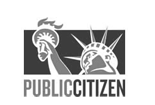 Today, the US Chamber of Commerce continued its crusade to strip the ability of our government to hold corporate polluters accountable for their actions.
Today, the US Chamber of Commerce continued its crusade to strip the ability of our government to hold corporate polluters accountable for their actions.
In an email blast this morning asking their supporters to push Congress to destroy the Clean Air Act and Environmental Protection Agency, the Chamber wrote, “Legislation by regulation has no place in a democracy that values accountability and transparency — there have to be checks and balances.”
This is just the type of rhetoric one would expect from the communications hacks at the Chamber. It’s classic PR spin, after all: pick a narrative that appeals to American values; use words that we all agree with, like “democracy;” and use it to make a completely circuitous argument.
One of the reasons we have agencies like the Environmental Protection Agency, of course, is so that there is a “check and balance” against the large corporations that threaten to overwhelm the rights and voices of everyday citizens. Having a watchdog that works on behalf of the environment and public health means that the public can force at least a certain level of “accountability and transparency” onto some of the largest polluters in the world.
Instead of this system, one that for decades allowed our economy to grow while improving the quality of our nation’s water and air, the US Chamber wants to hand over control to politicians in Congress. Do they really think the public is going to be duped by this argument?
According to recent polling, more than 70% of Americans disapprove of the way Congress is doing its job. And they have good reason, especially when it comes to keeping an eye on big corporations. After all, with campaign contributions from corporate polluters at an all time high, why would the public trust a politician in Congress to bite the hand that feeds it?
Yet again, the Chamber is lining itself up on the side of corporate special interests and against the people and small businesses who depend on our government and public institutions to hold big polluters accountable.









